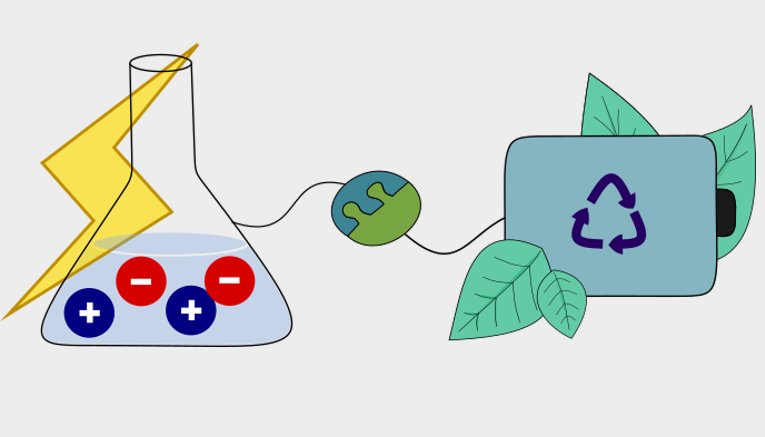
Advanced electrolytes for sustainable batteries
Today lithium batteries are omnipresent and important for both our nomadic life-style and, more importantly, crucial to reduce climate change and decrease our oil dependency via electrification of the transport sector. However, together with high cost, the safety of the batteries is always in focus – and this is closely related to the electrolytes used in the batteries. Being based on flammable solvents and a partially unstable Li-salt – new electrolyte alternatives are thus much urged for. Therefore, my research aims for safer and more environmentally-friendly ‘green’ electrolytes based on bio-sourced, abundant, reliable and low-cost materials with a carbon footprint close to ‘zero’!
My research focuses on three axes: 1. The design and characterization of battery electrolytes. 2. Integration of the innovative electrolytes in full battery cells (involving a selection of adequate and performant anodes and cathodes). 3. Characterizing and understanding the role of the electrolyte in the battery cell (ex and in-situ characterization).
The development of highly concentrated aqueous electrolytes (HCAEs) is the core of my current research. The goal is to surpass the currently existing HCAEs, which employ fluorinated and costly salts, by using solely safe, abundant, and inexpensive salts. However, this selection presents numerous challenges due to the limited number of salts with high water solubility. Therefore, one strategy is to create hybrid electrolytes by combining two different salts or by using water-soluble additives. The target is to reach high electrochemical stability, high transference number, high ionic conductivity and low glass temperature transition. The optimized electrolyte is aimed at next-generation batteries such as Na, Zn, and Mn batteries. In particular Zn batteries, which are emerging as a promising technology that could meet the requirements of cost-effective, safe, and reliable large-scale storage systems.
